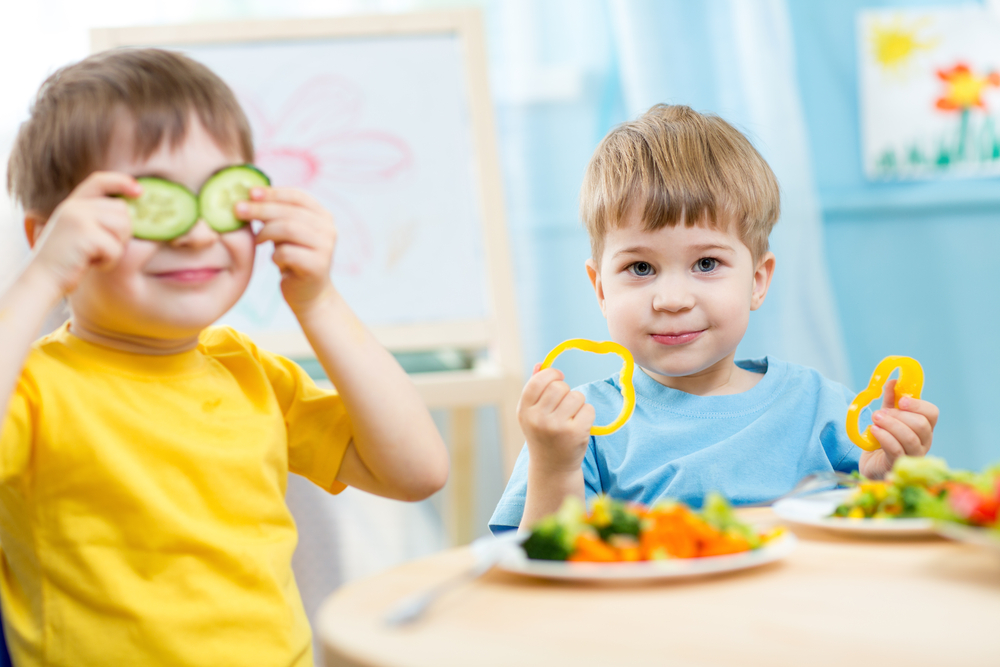Food is vital in such ways; in my culture, food means to love, so it’s not just about a good diet but love and care. For me, food has many associations that are not all about nutrition; what about you?
I am sure most of you have been reading about Vitamin D deficiency, there has been much in the media, so it’s spurred me to write a bit more on food, mood, and learning. I will share what foods may help your child in their knowledge and whether there is evidence that what they eat can help concentration and wisdom. The brains of young children need a regular supply of energy to be able to think effectively and as they are still forming and growing.
 Iron, Iodine, Zinc, Selenium, magnesium, Vitamin D, Omega 3, and Tryptophan are all critical for brain functioning. This is why eating a healthy diet of several different food groups is so important. We know that eating breakfast is helpful for children, and eating foods that are digested slowly can helpfubeneficialhildren maintain energy. Foods that contain fibre help this.
Iron, Iodine, Zinc, Selenium, magnesium, Vitamin D, Omega 3, and Tryptophan are all critical for brain functioning. This is why eating a healthy diet of several different food groups is so important. We know that eating breakfast is helpful for children, and eating foods that are digested slowly can helpfubeneficialhildren maintain energy. Foods that contain fibre help this.
Omega 3 Foods to help Attention.
There is a lot of evidence to show that eating two portions a week of oily fish ( trout, sardines, salmon herring, tuna, mackerel, cold-pressed linseed oil and fish oil supplement is perfect for you. Oily fish contains omega fatty acid called (DHA), which is very powerful for your brain chemistry; it forms half the fat in the brain. Ensuring this in their diet can help attention though there is not enough evidence to show that it helps hyperactivity. There is some evidence that it can help your mood, but there have been limited studies.
Foods rich in Zinc and Magnesium for Anxiety, Attention, and Sleep
Low zinc levels, poor sleep, and attention may be linked. Beef is an excellent food for upping your Zinc levels because ounce for ounce has more zinc than many other foods, Shrimp, Kidney beans, Flax Seeds, Pumpkin Seeds, Oysters and poeyees food spinach. Low levels of magnesium can increase anxiety, so eating foods such as beans and nuts, whole grains such as brown rice and whole wheat bread, and green leafy vegetables.
Foods rich in Iron for poor Mood and Concentration
There is a strong link between low Iron and poor mood and concentration. Do you notice your child is always tired and has no energy? They might be Iron deficient. Foods rich in this are Red meat, pork, and poultry. Beans/peas.Dark green leafy vegetables, such as spinach.Dried fruit, such as raisins and apricots.Iron-fortified cereals, bread, and dark green leafy vegetables, such as spinach. Dried fruit, such as raisins and apricots.Iron-fortified cereals, bread, and pasta.
Foods rich in Tryptophan and Serotonin for low Mood
The evidence is limited for this. However, some studies have shown it can be crucial. Serotonin is a chemical your body produces that’s needed for your nerve cells and brain to function; it affects your mood so if you feel your child is annoying you, check whether you may have low serotonin. Tryptophan is the building block of serotonin. Eating bananas, avocados, and oily fish can help. This must be in conjunction with B6 and B12 to be manufactured appropriately.
Foods rich in Vitamin D
This one is so important and is all over the media right now. The British Dietetic Association recommend that your child takes supplements. If your child is deficient, you may notice they have cramps, bone pain, and dental abnormalities. It is easy to check by having a blood test at your GP. Ensure you are out in the sun; I know it’s been raining lately. Do share with your teenagers who spend a lot of time on social media and indoors. Ensure you are out in the sun; I know it’s been raining lately. Do share with your teenagers who spend a lot of time on social media and indoors.
Foods containing vitamin D are Cod Liver Oil (unsuitable for Vegans). Others high in are Eggs and fortified cereals. There is evidence to show that if you are deficient, then the family should be tested. Be aware that not all multivitamins have enough dosage of vitamin D. I have included a link to the Royal National Orthopedic hospital that has an excellent guide onVitaminD https://www.rnoh.nhs.uk/our-services/children-adolescents/vitamin-d-children.
Please consult your GP if you are concerned; this blog is for information purposes only.
Please share your experiences; there is evidence that children can be deficient, and eating foods rich in the above may help. What food has helped you?
Do one action today to help your child be healthy, safe, secure and loved.
With love Catherine


